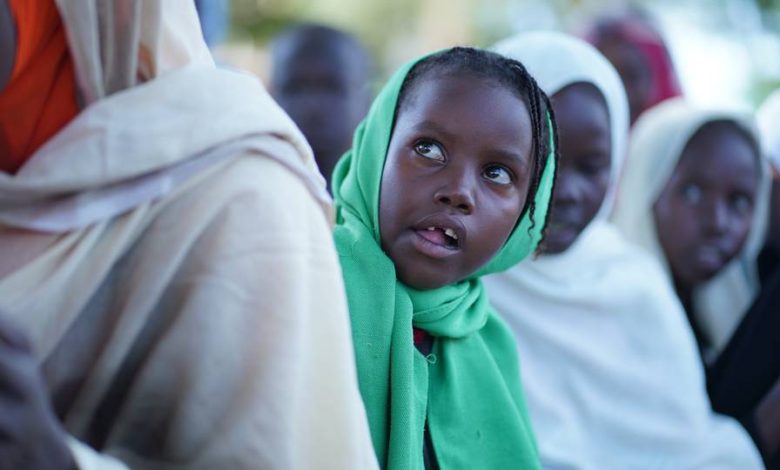Millions of Children Face Hunger in a Preventable Crisis

Agencies – Sudan Events
The ongoing conflict in Sudan is making it harder to tackle the malnutrition crisis. Humanitarian access is restricted in many parts of the country, which makes it difficult to deliver aid and other essential supplies to those who need it.
Malnutrition is preventable and treatable and according to studies for every $1 invested in nutrition provides $10 in returns, but without timely treatment many children will not survive.
Before the ongoing war that started in April 2023, the situation of children was already alarming. Sudan had one of the highest rates of malnutrition among children in the world. More than 3 million children were acutely malnourished, of which over 610,000 were severely wasted.
In 2018 and 2019, around 14 percent of children under five years old in Sudan were malnourished. This is higher than the global average of 7.5 percent and even higher than the rate in Yemen, which is 12.1 percent.
Sudan was once called “the food basket of the Arab World,” known for its fertile land rich in minerals, millets and sorghum. It’s also one of the world’s biggest agriculture exporters. So how can a country rich in natural resources have one of the highest rates in malnutrition globally?
There are many contributing factors such as poor feeding practices, lack of access to clean water, and conflicts that have prevented communities from accessing health and nutrition centres.
Some of these problems are easier to solve than others. Poor feeding practices sometimes linked to cultural practices were addressed through education and awareness campaigns. For example, mothers who did not know the benefits of breastfeeding their infants were taught more about this and coached on various nursing strategies.
According to the UN, malnutrition rates have not improved in Sudan over the past 30 years. The number of children who are stunted (too short for their age) and wasted (too thin for their height) has actually increased since 1987. Malnutrition, if untreated, can lead to death.
One important factor when creating advocacy and communication content for and with the communities we serve is to ensure we approach with respect, seek informed consent and ensure the mothers, children and entire communities are depicted and treated with dignity.
Sudanese people are very proud people. Even in their times of need and weakness they remain resilient, proud and content.
The situation before the war was already dire, but since the war started in April 2023, humanitarian assistance has been further disrupted. This has made it harder for mothers to access needed support in health clinics.
The world cannot allow Sudan’s children to become another deadly statistic. Behind every number is a child full of potential and dreams. If the war continues, these numbers will soar and an entire generation could be lost.



